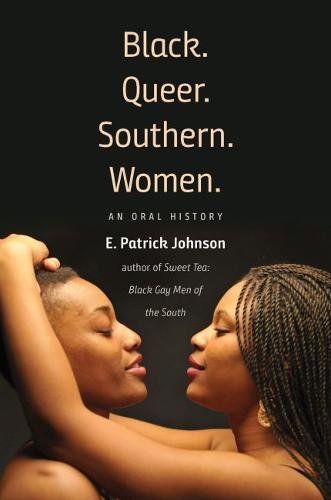“Birth Control Gets Caught Up in the Abortion Wars”
”The Trump administration’s cruel new family planning rule threatens access to contraception and other health care for poor women.”
Rachel Browne, “This City Will Start Outing Johns.Sex Workers Think It’s a Terrible Idea”
”Police in London, Ontario say publicizing names of people charged with buying sexual services will curb demand and help prevent sex trafficking.”
Tracy Clark-Flory, “The Sneakily Retro Politics of a ‘Brutally Honest’ Post-Baby Photos”
”A new advertising campaign launched by Mothercare, the UK’s “number one retailer” of baby products, features vivid photos of women’s post-baby bodies. There are stretch marks and scars, alongside the beautiful little bundles of joy who created said stretch marks and scars.”
Tara Copp, “In a first, active duty transgender service members will testify before Congress on policy, potential ban”
”On Wednesday, [Capt. Alivia] Stehlik and Navy Lt. Cmdr. Blake Dremann will be the first active-duty transgender personnel to testify before Congress as part of a panel looking at how President Donald Trump’s transgender policy impacts their ability to serve.”
“Gay priests used as ‘convenient scapegoat’ for Vatican sex abuse: LGBTQ advocate”
”While Vatican leadership have largely denounced the idea that homosexuality is to blame for sex abuse in the church, certain "fringe" elements are keeping the thoroughly debunked notion alive, says an advocate for LGBTQ Catholics.”
Emma Green, “The United Methodist Church is Facing Existential Fracture”
”The mainline denomination voted on Tuesday to toughen its teachings against homosexuality, same-sex marriage, and LGBT clergy. It must now decide whether it will stay together.”
Prachi Gupta, “This Is a Very Bleak Preview of a Reproductive Health Access After the Gag Rule”
”After Texas defunded Planned Parenthood in 2011, the state poured millions of dollars into a network of anti-abortion Christian pregnancy centers—a decision that could offer a glimpse of what’s to come in other states after the Trump administration announced a plan to block federal grant funding for reproductive health organizations that offer abortion services and counseling.”
Tiara Jenkins and Jessica Yarmosky, “Dr. Seuss Books Can Be Racist, But Students Keep Reading Them”
”That tension between Seuss and Seuss-free classrooms is emblematic of a bigger debate playing out across the country — should we continue to teach classic books that may be problematic, or eschew them in favor of works that more positively represent of people of color?”
Mansee Khurana and Jared Peraglia, “Fifty Years After Stonewall, Talk Revisits NUY’s History With the LGBTQ Community”
”In 1970, NYU prevented queer clubs from holding events on campus. Today, they celebrate Stonewall’s 50th anniversary.”
Paul Kramer, “The Black Pastor Whose ‘Turban Trick’ Exposed American Racism”
”Rev. Routté bluffed his way into first-class treatment in the Jim Crow-era south — unmasking the ridiculous hypocrisy of segregation.”
“Pope Francis demanded ‘concrete’ measures against child sex abuse. Where are they?”
”Was the Vatican’s just-completed summit on child sex abuse, convened by Pope Francis amid a crisis of credibility that has crippled the Catholic Church’s moral authority, really intended simply to prepare the way for genuine reforms in the indefinite future?”
Esther Wang, “Mass Detention Has Created a Sexual Violence Crisis for Young Immigrants”
”Recently revealed internal documents from the Department of Health and Human Services show that sexual abuse of immigrant youth in federal detention is rampant. According to the documents, which were provided to Axios, HHS’s Office of Refugee Resettlement received 4,556 complaints of alleged sexual abuse against unaccompanied minors who were in ORR’s care between October 2014 and July 2018, and the Department of Justice received 1,303.”
Alia Wong, “When Schools Tell Kids They Can’t Use the Bathroom”
”By imposing harsh restrictions on when students can use the restroom, educators are teaching kids to ignore their bladder.”
Article Spotlight
"The Forty-One’s legacy is, nevertheless, a conflicted one. While stigma surrounding the case made the number a symbol of degeneracy and deviancy, by the end of the century discotecas (nightclubs) in Mexico City were carrying the name “41,” while sexual rights advocates began citing the event as a key moment in Mexican LGBTTTI (lesbian, gay, bisexual, transsexual, transgender, travesti, and intersex) history. The scandal’s enduring notoriety, coupled with the diverse appropriations of its memory, thus requires further exploration. Doing so will reveal a history of the Forty-One that is neither solely about stigma and repression nor exclusively tied to male homosexuality. I argue that contestations by elite state and cultural actors and activists from the 1940s through the 1970s to remove the stigma and shame associated with the Forty-One began a process of homosexual identity formation and liberation that eventually enabled the proliferation of new and radical modes of representation and community dialogue by the end of the century. The symbolism and memory of the Forty-One offered an opportunity for the portrayal of sexual desires in magazines and erotica that defied dominant notions of sexual and aesthetic hierarchy. During the 1980s and early 1990s, the memory helped to introduce the notion of healthy bodies and the importance of alternative sexual practices in the aftermath of the HIV/AIDS crisis, while in the late 1990s and early 2000s the Forty-One’s symbolism emphasized the eroticism of transgender bodies and the viewing pleasure of women.”
Episode Spotlight
In August of 1962, Sherri Chessen boarded a flight to Sweden in order to get an abortion after she was unable to obtain one in the United States. Sherri had accidentally taken medicine containing thalidomide, a drug that caused children to be born with internal injuries and shortened limbs. Thalidomide also caused women to miscarry, deliver stillborn babies, or have children who died during their infancy. Her decision to terminate this risky pregnancy and her journey abroad attracted international attention from journalists, politicians, and religious leaders. Sherri’s ordeal made public what countless American women experienced when they sought to terminate their pregnancies. Her widely shared story changed the way many Americans thought about abortion laws and even about abortion itself.








